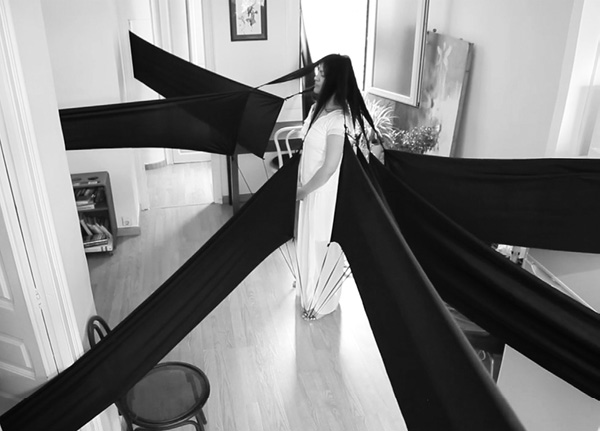
DE-FRAGMENTOS
first performed on May 22, 2016
Piquer 52, 5-2, Barcelona, Spain
performed once in 2016
DE-FRAGMENTOS / MELINA PEÑA
Marisa Hoz De Vila
Barcelona, Spain
246847885m246847885e246847885l246847885i246847885n246847885a246847885.246847885i246847885s246847885.246847885p246847885e246847885n246847885a246847885@246847885g246847885m246847885a246847885i246847885l246847885.246847885c246847885o246847885m
melinapena.com
DE-FRAGMENTOS
DE-FRAGMENTOS / MELINA PEÑA
An interactive performance in collaboration with Marisa Hoz De Vila, commissioned by Casa Entera.
The outside is in my house, my body and in me.
Nowadays, our home functions as a multi-purpose space where all our daily activities take place: life, work, healing, and interaction with the outside through a number of advanced technology devices.
Is home our refuge or prison?
Our domestic space bifurcates and intermingles with other spaces, creating a condition where our home becomes a private/public space, a touristic space. Many of us have had to uproot our identity from our home for an extra income, while our connection with our space strengthens and disintegrates at the same time.
The piece took place in my apartment. As people entered they had to crawl under long pieces of black fabric that stretched out from my hair, through the space and the windows of my apartment, stretching into other spaces of the building. The audience gathered and I gave a pair of scissors to one of the guests. I invited them to cut my hair. This continued until I had no hair left; I was freed from the tension. I then asked someone to shave my hair with clippers. Everyone then gathered and began shaving my head with a razor. Throughout its duration, the piece mutated into a gathering where a ritual was shared among friends to celebrate change.
I presented an action that challenged the boundaries between home and the touristic apartment, graphically establishing a spatial connection/disconnection which was affected by entities foreign from myself and the soul of my space called home, house, or touristic apartment. “De-fragmentos” evolved as the participants activated it, reflecting on ideas of care and shelter, as well as perceptions of risk and affection.